Books (original) (raw)
Books
Books2024-09-05T17:03:13-04:00
-
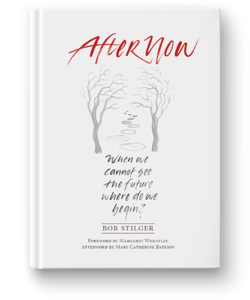
On the afternoon of March 11, 2011, massive, overwhelming, incomprehensible disaster struck the northeast coast of Japan. Life for those in the region would never be the same. This book is about the awakening that follows disaster. About the minutes and hours and months and years that come after now. It is about what happens when we’re smacked on the side of the head and open our eyes, startled out of the trance in which we have been living our days. It is about the opportunities always present, often invisible, to create the lives we want, now.
Aftershocks of Disaster
An in-depth look at Puerto Rico in the aftermath of Hurricane Maria and the preexisting crisis that conditioned this historic disaster.-
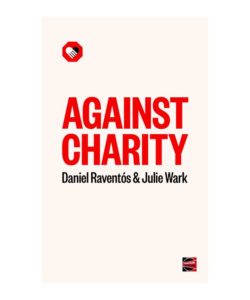
Charity is not a gift. Gift-giving implies reciprocity, an ongoing relationship. When requital is impossible, the act of giving remains outside mutual ties and charity becomes yet another manifestation of class structure, a sterile one-way act upholding the status quo. -

This book takes examples from around the world, picking through history and anthropology, showing that people have, in different ways and at different times, demonstrated mutual aid, self-organization, autonomy, horizontal decision making, and so forth--the principles that anarchy is founded on--regardless of whether they called themselves anarchists or not. Too well documented to be strictly mythology, and too expansive to be strictly anthropology, this is an inspiring answer to the people who say that anarchists are utopian: a point-by-point introduction to how anarchy can and has actually worked. -
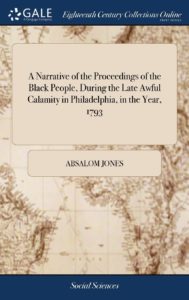
In 1793 Philadelphia was severely plagued by a severe yellow fever epidemic – more than 100 people were dying per day. Mainly whites since African-Americans seemed largely unaffected by fever. For this reason Mayor Matthew Clarkson asked Absalom Jones and Richard Allen to organize the African-American community to assist in caring for those stricken; and burying those who died. However, after the epidemic abated, some accused the African-American community of overcharging and stealing from people for whom they were caring and robbing the dead. Richard Allen and his partner, Absalom Jones wrote "A Narrative of the Proceedings of the Black People, During the Late Awful Calamity in Philadelphia, in the Year 1793: And a Refutation of Some Censures, Thrown Upon Them in Some Late Publications," to address the charges levied against their community. -
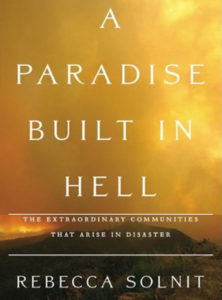
The most startling thing about disasters, according to award-winning author Rebecca Solnit, is not merely that so many people rise to the occasion, but that they do so with joy. That joy reveals an ordinarily unmet yearning for community, purposefulness, and meaningful work that disaster often provides. -
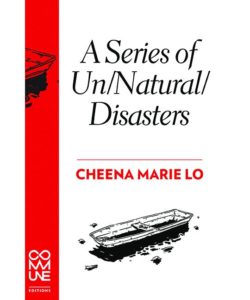
A Series of Un/Natural/Disasters explores the many forms of mutual aid and possibility that appear in moments of state failure. It maps long and complicated equations, taking us from Katrina to the prisoners at Riker's Island as they await Hurricane Sandy. It understands and explains disaster as a collective system, the state as precarious, and community as both fundamental and necessary. -

Oregon State University Press
Indigenous nations are on the frontline of the current climate crisis. With cultures and economies among the most vulnerable to climate-related catastrophes, Native peoples are developing responses to climate change that serve as a model for Native and non-Native communities alike. -
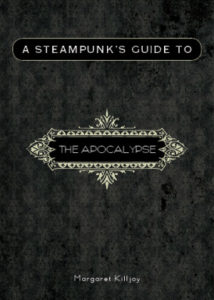
A fully-illustrated manual of steampunk survival that covers water, food, security, health, location, and communications. -
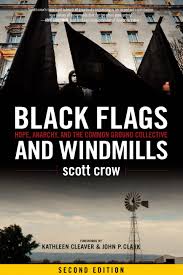
When both levees and governments failed in New Orleans after Hurricane Katrina, the anarchist-inspired Common Ground Collective was created to fill the void. With the motto of “Solidarity Not Charity,” they worked to create power from below—building autonomous projects, programs, and spaces of self-sufficiency like health clinics and neighborhood assemblies, while also supporting communities defending themselves from white militias and police brutality, illegal home demolitions, and evictions.
Body and Soul
The legacy of the Black Panther Party’s commitment to community health care, a central aspect of its fight for social justice-
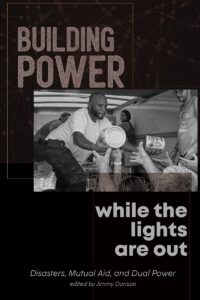
As hurricanes, fires, pandemics, and other disasters increase in intensity and frequency, the insights, visions, and experiences the authors in this book share offer a valuable road map to meet the climate crisis head on, struggle for a just recovery when disasters do hit, reimagine our relationships to each other and the planet, and as the Zapatistas taught civil society, “Don’t seize power, exercise it.” -

In January 2020, China alerted major international scientific bodies about the eruption of a dangerous new virus and heavily promoted basic precautions. U.S. politicians and corporate media ridiculed and ignored the warnings.Washington ramped up its policy of racist propaganda, military encirclement, trade war and sanctions. -

An observational study of the social impact caused by the Halifax Disaster and the relief efforts following. Examination follows the event from the nature of the catastrophe, through the disintegration of social order, and ending with the rebuilding of the effected communities. -
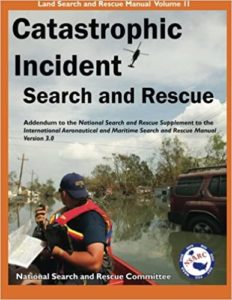
National Search and Rescue Committee
Mass rescue operations are complex, confusing and extremely challenging for multiagency responders. Catastrophic Incident Search and Rescue was developed by the National Search and Rescue Committee (NSARC) to provide clear, definitive, standardized direction and information on search and rescue (SAR) during disasters. It covers federal response organization, incident management, critical considerations, specific field considerations organized by disaster type, and the impact of man-made disasters. -
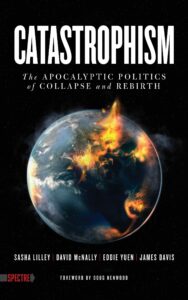
Catastrophism explores the politics of apocalypse—on the left and right, in the environmental movement—and examines why the lens of catastrophe can distort our understanding of the dynamics at the heart of these numerous disasters—and fatally impede our ability to transform the world. -
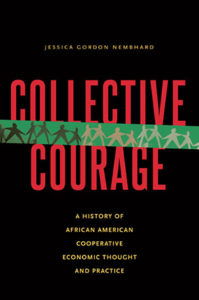
In Collective Courage, Jessica Gordon Nembhard chronicles African American cooperatives. Many of the players are well known in the history of the African American experience: Du Bois, A. Philip Randolph and the Ladies' Auxiliary to the Brotherhood of Sleeping Car Porters, Nannie Helen Burroughs, Fannie Lou Hamer, Ella Jo Baker, George Schuyler and the Young Negroes’ Co-operative League, the Nation of Islam, and the Black Panther Party. Adding the cooperative movement to Black history results in a retelling of the African American experience, with an increased understanding of African American collective economic agency and grassroots economic organizing. -
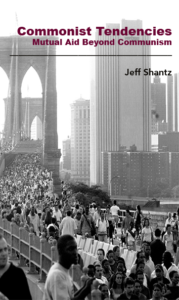
As capitalist societies in the twenty-first century move from crisis to crisis, oppositional movements in the global North have been somewhat stymied (despite ephemeral manifestations like Occupy), confronted with the pressing need to develop organizational infrastructures that might prepare the ground for a real, and durable, alternative. More and more, the need to develop shared infrastructural resources — what Shantz terms “infrastructures of resistance” — becomes apparent. Ecological disaster (through crises of capital), economic crisis, political austerity, and mass produced fear and phobia all require organizational preparation — the common building of real world alternatives. -
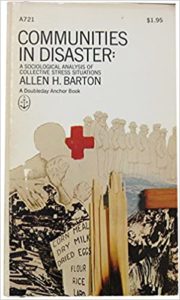
Examines what social science research has discovered so far about individual and social response to collective stress, ranging from natural disasters like floods and earthquakes to man-made ones like atomic bombing or the assassination of a President, and including long-standing stresses like depressions or chronic poverty. -
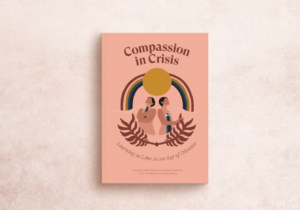
Co-written and curated by Kailea Frederick and Kate Weiner with vibrant cover art by Vyana Novus, Compassion in Crisis braids together interviews with survivors of climate disaster and resources on disaster preparedness to provide our community with an accessible guide to resilience and regeneration in the Anthropocene.
Compassion in Crisis is a study in self-sovereignty. In the midst of disaster, many communities of care have emerged independent of government intervention to take care of their own, rebuild homes, and nourish their extended network of kin. As we work together to navigate disaster and confront change, we hope that this offering will hold space for your grief, inspire you to cultivate resilience, and connect you to adaptation strategies.
Constellations of Care
'Offers the conversations we need to sustain the possibility of anarchist, feminist, and queer world-making in the ruins of everyday brutality' - Mattilda...-
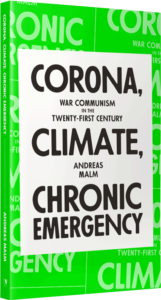
What does the COVID 19 tell us about the climate breakdown, and what should we do about it? -
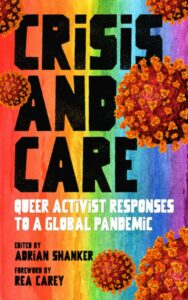
Crisis and Care reveals what is possible when activists mobilize for the radical changes our society needs. In a time of great uncertainty, fear, and isolation, queer activists organized for health equity, prison abolition, racial justice, and more. Nobody who lived through the COVID-19 pandemic will soon forget the challenges, sacrifices, and incredible loss felt during such an uncertain time in history. Crisis and Care addresses not what happened during COVID-19, or why it happened, but rather how queer activists responded in real time.
Critical Disaster Studies – Penn Press
This book announces the new, interdisciplinary field of critical disaster studies. Unlike most existing approaches to disaster, critical disaster studies beg...
Deciding For Ourselves
This anthology explores this “sense of freedom in the air,” as one piece puts it, by looking at contemporary examples of autonomous, directly democratic spaces and the real-world dilemmas they ...
Disaster Anarchy
Anarchists have been central in helping communities ravaged by disasters, stepping in when governments wash their hands of the victims. Looking at Hurricane ...
Disaster and Resistance
"For years now Seth Tobocman has been taking on the powers that be for all of us. He's not slowing down either—check out the contents of this volume." —Harvey Pekar, comics guru, ...-

An earthquake shatters Haiti and a hurricane slices through Texas. We hear that nature runs rampant, seeking to destroy us through these 'natural disasters'. Science recounts a different story, however: disasters are not the consequence of natural causes; they are the consequence of human choices and decisions. we put ourselves in harm's way; we fail to take measures which we know would prevent disasters, no matter what the environment does. -
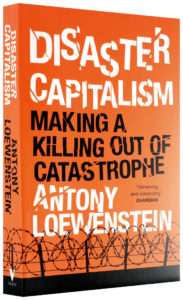
Disaster has become big business. Best-selling journalist Antony Loewenstein travels across Afghanistan, Pakistan, Haiti, Papua New Guinea, the United States, Britain, Greece, and Australia to witness the reality of disaster capitalism. He discovers how companies cash in on organized misery in a hidden world of privatized detention centers, militarized private security, aid profiteering, and destructive mining. -
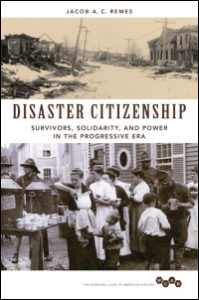
University of Illinois Press
A century ago, governments buoyed by Progressive Era–beliefs began to assume greater responsibility for protecting and rescuing citizens. Yet the aftermath of two disasters in the United States–Canada borderlands--the Salem Fire of 1914 and the Halifax Explosion of 1917--saw working class survivors instead turn to friends, neighbors, coworkers, and family members for succor and aid. -
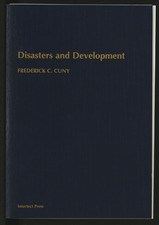
This book is about disaster response and the way in which relief agencies and other organizations provide aid and assistance in the developing countries. The book focuses on international disaster assistance, the aid provided by the industrialized nations through myriad international organizations, both governmental and private, which the public calls the international relief system. -

University of Delaware Disaster Research Center
Why do large-scale disasters produce such mentally healthy conditions? What therapeutic principles can we derive from a study of the natural human adjustments that develop among disaster survivors? -
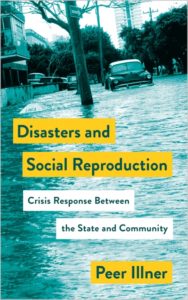
Many communities in the United States have been abandoned by the state. What happens when natural disasters add to their misery? This book looks at the broken relationship between the federal government and civil society in times of crises. Mutual aid has gained renewed importance in providing relief when hurricanes, floods and pandemics hit, as cuts to state spending put significant strain on communities struggling to survive. Harking back to the self-organised welfare programmes of the Black Panther Party, radical social movements from Occupy to Black Lives Matter are building autonomous aid networks within and against the state. However, as the federal responsibility for relief is lifted, mutual aid faces a profound dilemma: do ordinary people become complicit in their own exploitation? -
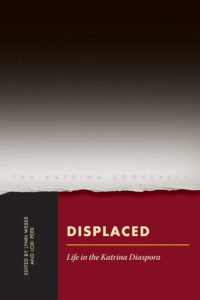
University of Texas Press
This moving ethnographic account of Hurricane Katrina survivors rebuilding their lives away from the Gulf Coast inaugurates The Katrina Bookshelf, a new series of books that will probe the long-term consequences of America’s worst natural disaster. -
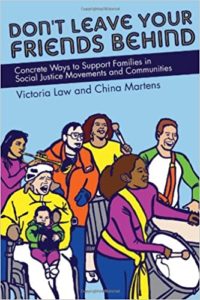
Don’t Leave Your Friends Behind is a collection of concrete tips, suggestions, and narratives on ways that non-parents can support parents, children, and caregivers in their communities, social movements, and collective processes. Don’t Leave Your Friends Behind focuses on issues affecting children and caregivers within the larger framework of social justice, mutual aid, and collective liberation.
2021 Earthbound Farmer’s Almanac
paperback//110 pages This is a Farmer's Almanac for the end of the world. Growing food used to be a lot more straightforward, when you'd...
2022 Earthbound Farmer's Almanac
All proceeds from almanac sales go towards the Earthbound Farmers Almanac project. In addition to being exclusively available online here at...
2023 Earthbound Farmers’ Almanac
All proceeds from almanac sales go towards the Earthbound Farmers Almanac project. In addition to being exclusively available online here at...-
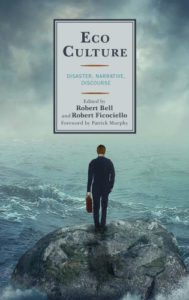
The edited collection, Eco Culture: Disaster, Narrative, Discourse, opens a conversation about the mediated relationship between culture and ecology. The dynamic between these two great forces comes into stark relief when a disaster—in its myriad forms and narratives—reveals the fragility of our ecological and cultural landscapes. -
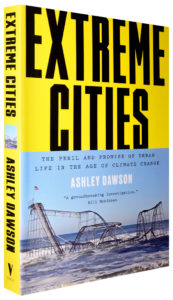
A cutting exploration of how cities drive climate change while being on the frontlines of the coming climate crisis -
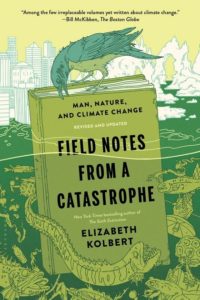
Elizabeth Kolbert's environmental classic Field Notes from a Catastrophe first developed out of a groundbreaking, National Magazine Award-winning three-part series in The New Yorker. She expanded it into a still-concise yet richly researched and damning book about climate change: a primer on the greatest challenge facing the world today. -
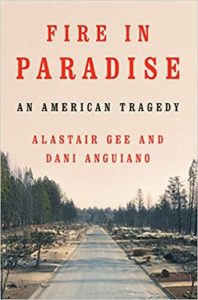
There is no precedent in postwar American history for the destruction of the town of Paradise, California. On November 8, 2018, the community of 27,000 people was swallowed by the ferocious Camp Fire, which razed virtually every home and killed at least 85 people.
Floodlines
A People's History of community organizing in New Orleans in the years before and after Katrina.-
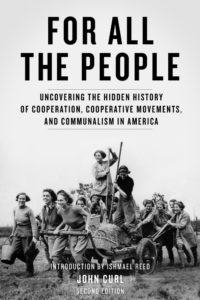
Seeking to reclaim a history that has remained largely ignored by most historians, this dramatic and stirring account examines each of the definitive American cooperative movements for social change—farmer, union, consumer, and communalist—that have been all but erased from collective memory. -
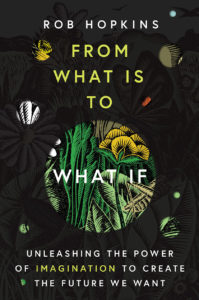
In these times of deep division and deeper despair, if there is a consensus about anything in the world, it is that the future is going to be awful. There is an epidemic of loneliness, an epidemic of anxiety, a mental health crisis of vast proportions, especially among young people. There’s a rise in extremist movements and governments. Catastrophic climate change. Biodiversity loss. Food insecurity. The fracturing of ecosystems and communities beyond, it seems, repair. The future—to say nothing of the present—looks grim.
Frontlines of Repair
Political cartoonists and artists address social, political, and environmental damage, charting a path toward healing and repair.
Governing Affect
Roberto E. Barrios presents an ethnographic study of the aftermaths of four natural disasters: southern Honduras after Hurricane Mitch; New Orleans followin...-
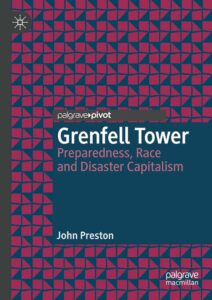
Takes a wider perspective on the Grenfell Tower disaster, explaining how the interests of governments and capital create the forms of preparedness we see in our divided cities
Combines Marxist social theory, Critical Race Theory and Klein’s concept of ‘disaster capitalism’ with the author's innovative theories of ‘preparedness’. Examines the Grenfell disaster not as exceptional but as the result of ‘tacit intentionality’ in the state’s relationship with the poor, with elite interests and with public services
Imperiled Life
Javier Sethness-Castro presents the grim news from contemporary climatologists while providing a reconstructive vision inspired by anarchist intellectual traditions and promoting critical thought as ...
Inhabit: Instructions for Autonomy
We’re building a platform for revolutionary autonomy. Amid climate change and economic ruin, we’re connecting a network of people who are ready to live and fight, aggregate skills, build ...-
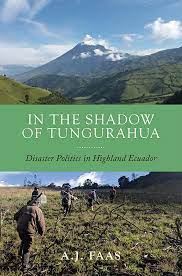
In the Shadow of Tungurahua relates the stories of the people of Penipe, Ecuador living in and between several villages around the volcano Tungurahua and two resettlement communities built for people displaced by government operations following volcanic eruptions in 1999 and 2006. -
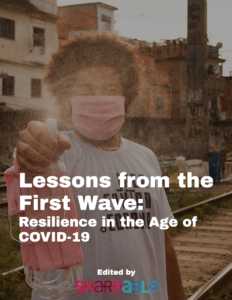
Lessons from the First Wave: Resilience in the Age of COVID-19, features 25 case studies, interviews, and how-to guides that showcase some of the most effective community-led responses to this global crisis.
Living at the Edges of Capitalism
Since the earliest development of states, groups of people escaped or were exiled. As capitalism developed, people tried to escape capitalist constraints connected with state control. This powerful ...-
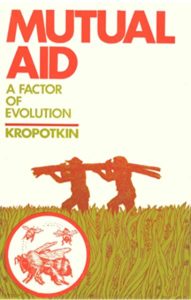
Mutual Aid: A Factor of Evolution is a 1902 essay collection by Russian naturalist and anarchist philosopher Peter Kropotkin. The essays, initially published in the English periodical The Nineteenth Century between 1890 and 1896, explore the role of mutually-beneficial cooperation and reciprocity (or "mutual aid") in the animal kingdom and human societies both past and present. -

One hundred years after his death, Peter Kropotkin is still one of the most inspirational figures of the anarchist movement. It is often forgotten that Kropotkin was also a world-renowned geographer whose seminal critique of the hypothesis of competition promoted by Social Darwinism helped revolutionize modern evolutionary theory. An admirer of Darwin, he used his observations of life in Siberia as the basis for his 1902 collection of essays Mutual Aid: A Factor of Evolution. Kropotkin demonstrated that mutually beneficial cooperation and reciprocity—in both individuals and as a species—plays a far more important role in the animal kingdom and human societies than does individualized competitive struggle. His message is clear: solidarity is strength!
Every page of this new edition of Mutual Aid has been beautifully illustrated by one of anarchism’s most celebrated current artists, N.O. Bonzo. The reader will also enjoy original artwork by GATS and insightful commentary by David Graeber, Ruth Kinna, Andrej Grubacic, and Allan Antliff. -

The ongoing decline in union membership is generally attributed to an increasingly hostile economic, legal, and managerial environment. Samuel B. Bacharach, Peter A. Bamberger, and William J. Sonnenstuhl argue that the decline may have more to do with a crisis of union legitimacy and member commitment. They further suggest that both problems could be addressed if the unions return to their nineteenth-century, mutual aid-based roots. The authors contend that the labor movement is characterized by two models of union-member relations: the mutual aid logic and the servicing logic. The first predominated in the early days and encouraged a sense of community among members who worked to support one another. In the twentieth century, it was largely replaced by the servicing model, which asks little of members, who remain loyal only if their leaders deliver increasing wages and benefits. Regaining legitimacy and strengthening member commitment can only happen, the authors claim, if mutual aid logic is allowed to return.
Mutual Aid Self/Social Therapy
The Jane Addams Collective formed as a response to the needs of radical activists for community mental health support. We wanted to rely on each other for this instead of traditional therapy or ...-
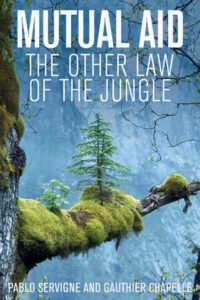
In the merciless arena of life, we are all subject to the law of the jungle, to ruthless competition and the survival of the fittest – such is the myth that has given rise to a society that has become toxic for our planet and for our and future generations.But today the lines are shifting. A growing number of new movements and thinkers are challenging this skewed view of the world and reviving words such as ‘altruism’, ‘cooperation’, ‘kindness’ and ‘solidarity’. A close look at the wide spectrum of living beings reveals that, at all times and in all places, animals, plants, microorganisms and human beings have practised different forms of mutual aid. And those which survive difficult conditions best are not necessarily the strongest, but those which help each other the most. -
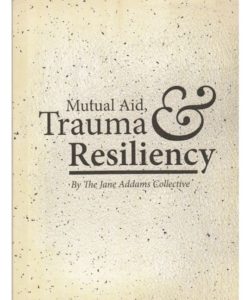
The Jane Addams Collective
Where capital and state power push for a neoliberal, isolating notion of self-care, we argue for collective, emotional resiliency. We can fight against our trauma at the same time as we fight against oppression.This slim volume begins the conversation of how.
This is a resource for guiding best practices around responding to trauma in the short- and long-term. We conceptualize these practices as tools for building emotional resiliency for both individuals and communities.
Natural Catastrophe
Radically revises our conception of climate change as a political problem, not a natural phenomenon
No More Heroes
Award-winning journalist Jordan Flaherty brings us inside the dark and politically twisted mind of the savior. Insightful and unsparing, No More Heroes is an indispensible tool for social justice ...-
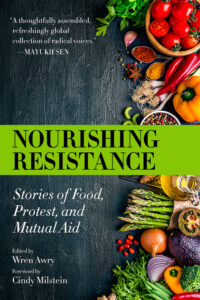
From the cooks who have quietly fed rebels and revolutionaries to the collective kitchens set up after hurricanes and floods, food has long played a crucial role in resistance, protest, and mutual aid. Until very recently, food-based work—steadfast and not particularly flashy—slipped under the radar or was centered on celebrity chefs and well-funded nonprofits. Adding to a growing constellation of conversations that push against this narrative, Nourishing Resistance centers the role of everyday people in acts of culinary solidarity. -
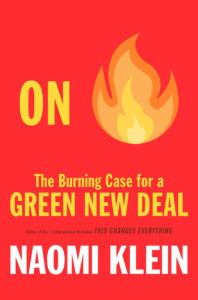
For more than a decade, Naomi Klein has documented the movement of the climate crisis from future threat to a burning emergency. She has been among the first to make the case for what is now called the Green New Deal – a vision for transforming our economies to battle climate breakdown and rampant inequality at the same time. In our era of rising seas and rising hate,
Pandemic Solidarity
In times of crisis, when institutions of power are laid bare, people turn to one another. Pandemic Solidarity collects firsthand experiences from around the ...-
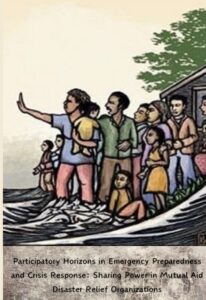
Rooted in a participatory action research framework, this is an in depth exploration of two mutual aid disaster relief organizations: Common Ground and Occupy Sandy, and what makes their approach distinctive and effective. Participatory horizons can mean two diametrically opposed realities that coexist at the same time. On the one hand, horizons means the limits of perception or experience. In this way, it is representative of the limit of the naive view that involvement alone is enough. How far can participation without sharing power take us? If the past is any indication, it will only take us to the familiar dead ends we have known so well. On the other hand, as Common Ground and Occupy Sandy exemplify, if we have the courage to truly value the voices and lives of disaster survivors, as equals, which means respecting their needs as they define them for themselves, there is the sun of a new day waiting to rise where the ocean meets the sky. This radical new approach to disaster relief and to social movement organizing, comes just in time for the storm clouds that even now are threatening in the distance. -
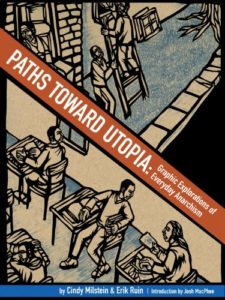
Consisting of ten collaborative picture-essays that weave Cindy Milstein’s poetic words within Erik Ruin’s intricate yet bold paper-cut and scratch-board images, Paths toward Utopia suggests some of the here-and-now practices that prefigure, however imperfectly, the self-organization that would be commonplace in an egalitarian society. The book mines what we do in our daily lives for the already-existent gems of a freer future—premised on anarchistic ethics like cooperation and direct democracy. Paths toward Utopia is not a rosy-eyed stroll, though. The book retains the tensions in present-day attempts to “model” horizontal institutions and relationships of mutual aid under increasingly vertical, exploitative, and alienated conditions. -

You hold in your hands an anthology of survival, renewal and struggle, a massive literary body collectively narrated by those impacted by the landfall and aftermaths of Hurricanes Katrina and Rita, by those who took action on behalf of survivors and returning evacuees and by those who came to the disaster-stricken land in search of livelihood.
Practicing Cooperation
A powerful new understanding of cooperation as an antidote to alienation and inequality-
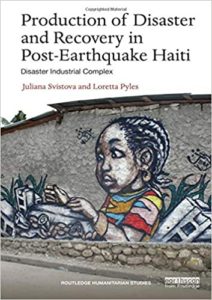
Natural disasters have long been seen as naturally generated events, but as scientific, technological, and social knowledge of disasters has become more sophisticated, the part that people and systems play in disaster events has become more apparent. Production of Disaster and Recovery in Post-Earthquake Haiti demonstrates how social processes impact disasters as they unfold, through the distribution of power and resources, the use of discourses and images of disaster, and the economic and social systems and relations which underlie affected communities.
Puerto Rico en mi corazn
Puerto Rico en mi corazón Poetry. Latinx Studies. LGBTQIA Studies. In the months following Hurricane Maria's passage over Puerto Rico, Puerto Rican poets, translators, book artists, & ...-
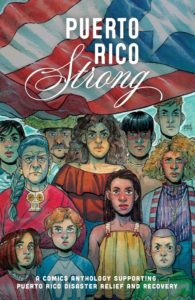
Puerto Rico Strong is the result of many people coming together out of empathy for the devastation the island faced after Hurricane Maria. Many within the Latinx community stepped forward to share their stories, both fictional and personal, that spoke of the culture, history, and strength of the Puerto Rican community. -
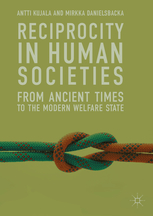
Presenting new insights into reciprocity, this book combines Marcel Mauss’s well-known gift theory with Barrington Moore’s idea of mutual obligations linking rulers and the ruled. Teasing out the interrelatedness of these approaches, Reciprocity in Human Societies suggests that evolutionary psychology reveals a human tendency for reciprocity and collaboration. -
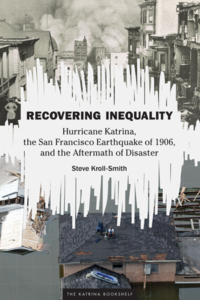
University of Texas Press
This comparative case study of the recovery outcomes from two of the most devastating urban catastrophes in American history lays bare the social inequality inherent in racially arranged, capital-based economies.
REHEARSING SOLIDARITY: LEARNING FROM MUTUAL AID
112 x 175mm, 143 pages, risograph printing, soft cover, perfect bound, 2022 This zine-book is an artifact of mutual aid organizing by Crown Heights Mutual Aid (CHMA) and Mutual Aid Medford/Somerville ...-
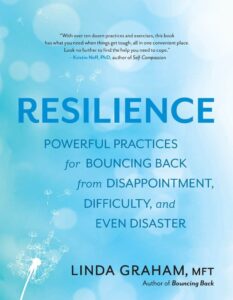
Resilience is the learned capacity to cope with any level of adversity, from a series of small annoyances to the struggles and sorrows that break our hearts to the utter disasters that change our lives forever. Resilience is essential for surviving and thriving in a world full of troubles and tragedies, and it is completely trainable and recoverable - when we know how. More than 130 evidenced-based tools to help you cope with anything, anything at all. A step-by-step process to strengthen the foundations of resilience.
Saving Our Own Lives
A comprehensive collection of intergenerational voices on harm reduction, mutual aid, and building community to save lives.-

The ‘new sharing economy’ is a growing phenomenon across the Global North. It claims to transform relationships of production and consumption in a way that can improve our lives, reduce environmental impacts, and reduce the cost of living. Amidst various economic, environmental, and other crises, this message has strong resonance. Yet, it is not without controversy, and there have been heated debates over negative dimensions for workers and consumers alike. This book stretches far beyond the sharing economy as it is popularly defined, and explores the complex intersections of ‘sharing’ and ‘the economy’, and how a better understanding of these relationships might help us address the multiple crises that confront contemporary societies.
Showdown in Desire
The Black Panthers Take a Stand in New Orleans Orissa Arend April 2009 Available In: Paper: 19.95(978−1−55728−933−9)Cloth:19.95 (978-1-55728-933-9) Cloth: 19.95(978−1−55728−933−9)Cloth:29.95 (978-1-55728-896-7)-
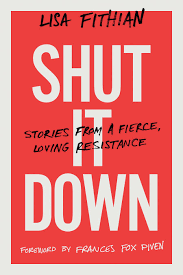
For anyone who wants to become more active in resistance or is just feeling overwhelmed or hopeless, Shut It Down offers strategies and actions you can take right now to promote justice and incite change in your own community.
Social Movements and Politics in a Global Pandemic
Social Movements and Politics in a Global Pandemic - Crisis, Solidarity and Change during COVID-19; EPUB and EPDF available Open Access under CC-BY-NC-ND licence.Bringing together leading authors in ...-
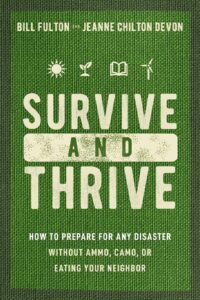
In this comprehensive handbook, you'll learn essential knowledge like water sourcing and purification, long-term food storage, stocking a disaster pantry, creating a safe home, assembling evacuation bags, and ensuring your family doesn't drive each other crazy in the face of chaos. You'll also unlock cool survival hacks to save the day when the lights are out, the gas is off, the supermarket is closed, and everyone around you is hunkered down like a mountain hermit. -
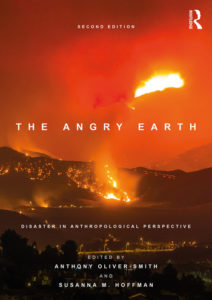
The Angry Earth explores how various cultures in different historical moments have responded to calamity, offering insight into the complex relationship between societies and their environments.
The Black Panther Party
The Black Panther Party represents Black Panther Party members' coordinated responses over the last four decades to the failure of city, state, and federal b...-
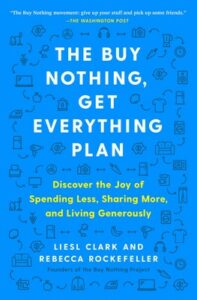
In the spirit of The Gentle Art of Swedish Death Cleaning and The Joy of Less, experience the benefits of buying less and sharing more with this accessible 7-step guide to decluttering, saving money, and creating community from the creators of the Buy Nothing Project. In their island community, friends Liesl Clark and Rebecca Rockefeller discovered that the beaches of Puget Sound were spoiled by a daily influx of plastic items and trash washing on shore. From pens and toothbrushes to toys and straws, they wondered, where did it all come from? Of course, it comes from us—our homes, our backyards, our cars, and our workplaces. And so, a rallying cry against excess stuff was born. -
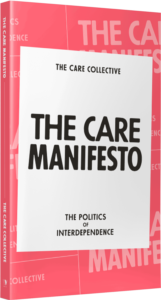
We are in the midst of a global crisis of care. How do we get out of it? The Care Manifesto puts care at the heart of the debates of our current crisis: from intimate care--childcare, healthcare, elder care--to care for the natural world. We live in a world where carelessness reigns, but it does not have to be this way. -

In The Conquest of Bread, Kropotkin points out what he considers to be the defects of the economic systems of feudalism and capitalism and why he believes they thrive on and maintain poverty and scarcity. He goes on to propose a more decentralized economic system based on mutual aid and voluntary cooperation, asserting that the tendencies for this kind of organization already exist, both in evolution and in human society. -
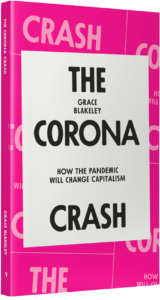
Free market, competitive capitalism is dead. The separation between politics and economics can no longer be sustained. In The Corona Crash, leading economics commentator Grace Blakeley theorises about the epoch-making changes that the coronavirus brings in its wake.
The Disaster Profiteers
Natural disasters don't matter for the reasons we think they do. They generally don't kill a huge number of people. Most years more people kill themselves th...
The Fight for Home
After the devastation of Hurricane Katrina, New Orleans became ground zero for the reinvention of the American city, with urban planners, movie stars, anarchists, and politicians all advancing their ...-
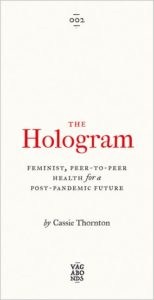
In an era when capitalism leaves so many to suffer and to die, with neoliberal 'self-care' offering little more than a bandaid, how can we take health and care back into our hands? In The Hologram, Cassie Thornton puts forward a bold vision for revolutionary care: a viral, peer-to-peer feminist health network. -
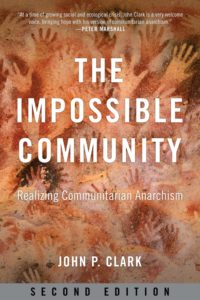
The Impossible Community confronts a critical moment when social and ecological catastrophes loom, the Left seems unable to articulate a response, and the Right controls public debates. This book offers a fresh and highly readable reformulation of anarchist social and political theory to develop a communitarian anarchist solution.
The Nation on No Map
The Nation on No Map examines state power, abolition, and ideological tensions within the struggle for Black liberation while centering the politics of Black autonomy and self-determination. A call ...
The Neoliberal Deluge
A critical collection on the politics of disaster and reconstruction in New Orleans-

A prize-winning journalist upends our centuries-long assumptions about migration through science, history, and reporting--predicting its lifesaving power in the face of climate change.
The Precipice
A collection of interviews with the world’s leading public intellectual from the time of the rise of Donald Trump to power to the end of his presidency.-

In 1871, the city of Chicago was almost entirely destroyed by what became known as The Great Fire. Thirty-five years later, San Francisco lay in smoldering ruins after the catastrophic earthquake of 1906. Or consider the case of the Jerusalem, the greatest site of physical destruction and renewal in history, which, over three millennia, has suffered wars, earthquakes, fires, twenty sieges, eighteen reconstructions, and at least eleven transitions from one religious faith to another. -
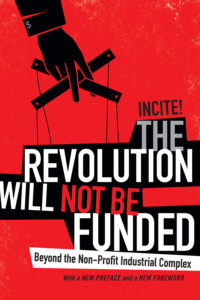
Urgent and visionary, The Revolution Will Not Be Funded presents a biting critique of the quietly devastating role the non-profit industrial complex plays in managing dissent. -
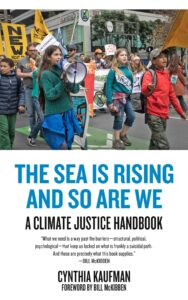
The Sea is Rising and So Are We: A Climate Justice Handbook is an invitation to get involved in the movement to build a just and sustainable world in the face of the most urgent challenge our species has ever faced. By explaining the entrenched forces that are preventing rapid action, it helps you understand the nature of the political reality we are facing and arms you with the tools you need to overcome them. -
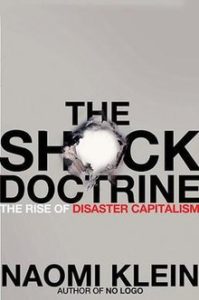
In The Shock Doctrine, Naomi Klein explodes the myth that the global free market triumphed democratically. Exposing the thinking, the money trail and the puppet strings behind the world-changing crises and wars of the last four decades, The Shock Doctrine is the gripping story of how America’s “free market” policies have come to dominate the world-- through the exploitation of disaster-shocked people and countries. -
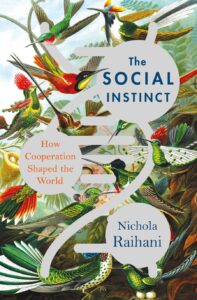
A biologist by training, Raihani looks at where and how collaborative behavior emerges throughout the animal kingdom, and what problems it solves. She reveals that the species that exhibit cooperative behaviour most similar to our own tend not to be other apes; they are birds, insects, and fish, occupying far more distant branches of the evolutionary tree. By understanding the problems they face, and how they cooperate to solve them, we can glimpse how human cooperation first evolved. And we can also understand what it is about the way we cooperate that makes us so distinctive–and so successful.
The Solutions are Already Here
Are alternative energies and Green New Deals enough to deliver environmental justice? Peter Gelderloos argues that international governmental responses to th...
The Young Lords
The Young Lords, who originated as a Chicago street gang fighting gentrification and unfair evictions in Puerto Rican neighborhoods, burgeoned into a nationa...
This Changes Everything
A book, film and engagement project about why the climate crisis is the best opportunity we've ever had to build a better world.-
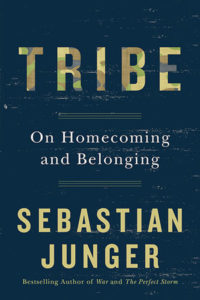
Twelve Hachette Book Group
Combining history, psychology, and anthropology, TRIBE explores what we can learn from tribal societies about loyalty, belonging, and the eternal human quest for meaning. It explains the irony that-for many veterans as well as civilians-war feels better than peace, adversity can turn out to be a blessing, and disasters are sometimes remembered more fondly than weddings or tropical vacations.
Undoing Border Imperialism
Undoing Border Imperialism combines academic discourse, lived experiences of displacement, and movement-based practices into an exciting new book. By reframing immigrant rights movements within a ...
IRIS MORALES
Voices from Puerto Rico: Post-Hurricane Maria brings together writings from twenty-two islanders -activists, artists, and community organizers- who describe the destruction and the conditions that ...
War of the Pews
St. Augustine Catholic Church has stood in the Trem? section of New Orleans for over 170 years. Its international fame and role as a musical and cultural center as well as a spiritual focus has made ...-
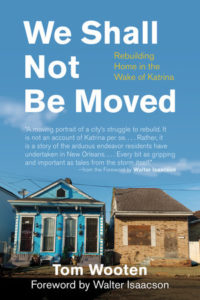
As floodwaters drained in the weeks following Hurricane Katrina, New Orleans residents came to a difficult realization. Their city was about to undertake the largest disaster recovery in American history, yet they faced a profound leadership vacuum: members of every tier of government, from the municipal to the federal level, had fallen down on the job. We Shall Not Be Moved tells the absorbing story of the community leaders who stepped into this void to rebuild the city they loved.
What Lies Beneath
In August 2005, thousands of New Orleans residents—overwhelmingly poor, largely people of color, the majority black—were left to face one of the worst “natural” disasters in US history on ...-
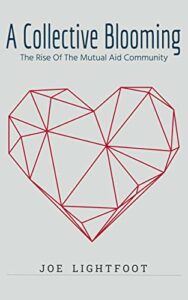
Somewhere along the way, we lost touch with each other. And unless we rediscover the communal bonds that define us as human beings, then we face the very real prospect of an increasingly dystopian future.In A Collective Blooming, Joe Lightfoot deconstructs the dominant stories of the day and puts forward a bold new narrative of community focused transformation. He introduces the Conscious Change Collective, a whole new kind of mutual aid community and invites you to join the compassionate wave of change that is gaining momentum all around the world.






































